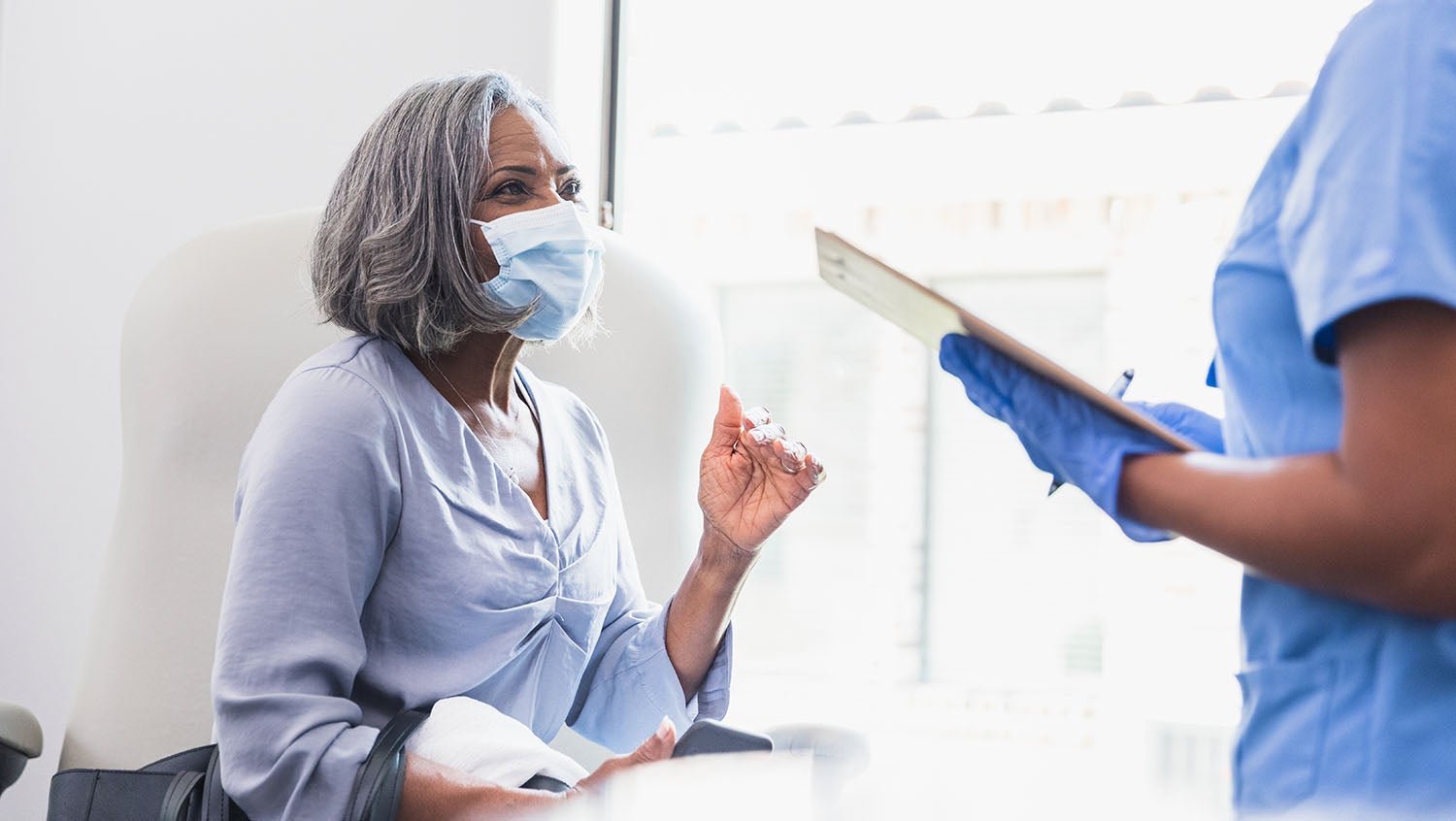How to Talk With Patients About the COVID-19 Vaccine
December 21, 2020

Getty Images
At this point in time, it is our most critical responsibility as medical professionals.
With two COVID-19 vaccines approved for emergency use and more possibly on the way, it’s time to start talking about vaccination with our patients. I believe that at this point in time, this is our most critical responsibility as medical professionals. However, it’s important to approach these conversations correctly to make meaningful connections with our patients—rather than scare them off.
I use the following approaches when discussing the vaccine with each and every one of my own patients to connect with them personally, alleviate their concerns, and reduce their hesitancy.
1. Start by asking open-ended questions.
Ask your patient how they’re doing, how they feel about the pandemic, and what they’ve heard about the vaccine. Starting with open conversation will help you to build trust and should guide how you approach the conversation. Some people are excited about the prospect of a vaccine. Many others express specific concerns, especially about vaccine safety. When you know exactly what’s on their mind, you can speak specifically to each of their individual concerns.
2. Address the unknown by relating to the known.
Many people are concerned about the safety of the vaccine because it feels like an unknown. I explain that just like the flu shot, some people have some reactions and side effects — most often just feeling lousy for the day. Patients are also asking me about the anaphylactic reactions that have occurred in the U.K. In this case, talk about their allergy history, whether they’ve ever experienced a reaction to a medication or a vaccine, and what can be done to prevent these reactions.
3. Be human and address your personal concerns.
Sometimes in medicine, we create a barrier between ourselves and our patients, as if things don’t touch us. But this pandemic touches everyone. Patients want to hear what you think as a fellow human. They want to hear what you’re choosing for yourself and your family. Consider sharing your own concerns and why you are still choosing to get the vaccine.
I also assure my patients that I will get the vaccine first, and I will be happy to share my experience with them before they get their own. Many people are concerned about being a “guinea pig.” Let them know that you’ll go first so they don’t have to.
4. Do not assume a position of authority.
You do not want to order your patients to get the vaccine or insist that it’s the right course of action. This is not productive and typically shuts down conversation. The doctor-patient relationship in a very powerful one. If the patient feels connected to you, it’s possible to have a meaningful conversation, but that connection won’t happen if you assume a position of authority.
Instead, it’s important to engage your patients in a discussion about their concerns to help lower their fears. This means really listening to and validating their emotional concerns — not just forcefully handing out facts.
5. Acknowledge their realities.
Not only has this pandemic disproportionately impacted people of color, but many of these people also harbor some distrust of the healthcare system after decades of mistreatment by the medical community at large. It’s important to acknowledge these realities — not shut them down. Do not try to fight or defend the history of mistreatment.
6. Connect more frequently with telehealth patients.
Having a productive vaccine conversation and alleviating fears online or over the phone will be more difficult. When you cannot see a patient in person, it’s harder to make a meaningful connection.
In these cases, make sure you’re talking to patients about the vaccine at every appointment, and really try to get them talking. Open up your conversation with the vaccine, and circle back around to it at the end of the appointment, too. Also consider checking in with them more frequently, if possible. Without face-to-face interaction, your patients may need more frequent conversations to really open up about their concerns.
It can be exhausting to have these conversations with every patient, day-in and day-out. But over the next few months, this is the most important responsibility we have to our patients. We still cannot fully predict which patients will have a bad COVID-19 outcome, so it’s important to connect with each and every patient about prevention through the vaccine. Remember — you’re doing the right thing.


